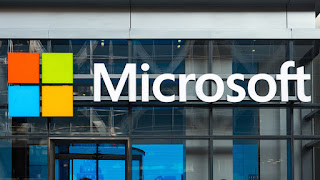It is reported that the latest Microsoft internal project is a new, simplified version of the Windows code name 'Polaris'. This new version of Windows is not a successor to Windows 10, not in the traditional sense. Instead, it's an alternative operating system like iOS or Chrome OS: a lightweight operating system designed for devices such as laptops and 2-in-1 ultra-mobile tablets. According to Windows Central, this could be the future of Windows.
Very good, then, what is it? At this point, it seems that Polaris could support Windows 10 S, the small version of Windows 10 student that Microsoft uses to test the operating system's light waters.
Windows 10 S could be seen as a kind of test balloon here, with Microsoft pointing to the education market to see how a reduced Windows experience would happen with the average Windows user.
According to testimonials, Polaris aims to eliminate all legacy components that make Windows 10 an operating system with all the features in favor of a system designed around the basics, such as Chrome OS. An operating system designed for people who normally work from a web browser. The new Windows based Polaris would be faster, more agile and with much less luggage.
Polaris, according to Window Central, will be fully based on Microsoft's Windows Universal Platform, or UWP, which makes it a much more hospitable environment for existing UWP applications and potentially offers battery life and performance improvements.
"The current Windows shell is one of the key legacy components that Microsoft replaces in Polaris, as well as eliminating unnecessary and legacy Win32 components and applications such as Notepad or Paint, in favor of a UWP experience, such as Windows 10 Mobile. "Windows Central informs.
This is an interesting and certainly logical change with Microsoft's recent move towards unification of its Windows experience across all platforms, but it is unclear whether Polaris would eventually be widely adopted. Currently, Chromebooks offer an exclusive niche for light computing on the fly, and Windows 10 exists in its full version in laptops and mobile devices from top to bottom in the price spectrum without any problem. Removing features that promise marginal gains in performance and battery life may not be of interest to a laptop, tablet, or 2-in-1 user.
